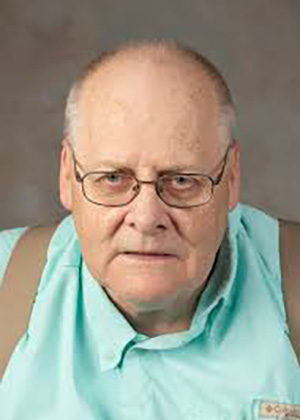OPINION —
In May 2005, as we were finishing student teaching for a master’s degree in education at AUM, a Nigerian classmate said he might not be able to graduate. He was told that the high school students he was teaching in rural Alabama could not understand his science lessons because of his thick West African accent.
We, as his friends, were upset. I don’t know whether he went back to Nigeria to teach, with the undergrad degree he already had, or did he take lessons in elocution? I doubted he would be denied his master’s degree without a compromise being met. His situation returned to me when I read in the New York Times this headline: “At NYU, students were failing organic chemistry. Who was to blame?”
Maitland Jones Jr., PhD, was a highly respected academic in organic chemistry. He taught it for decades — at Princeton and later at New York University, and wrote a seminal textbook. His teaching style brought him awards. Yet last spring, when COVID-19 restrictions were ending, he found that 82 of his 350 students signed a petition against him. They said the uber-competitive course was “too hard,” and that Jones’s teaching caused their poor test scores.
“The deans are obviously going for some bottom line, and they want happy students who are saying great things about the university so more people apply, and the U.S. News rankings keep going higher,” Paramjit Arora, a chemistry professor who has worked closely with Jones, told the Times.
The 84-year-old professor had explained why it was such a tough course. But before the start of the fall semester, university deans terminated Jones’s contract.
In his defense, Jones related that the pandemic cut students’ rhythms of study. First, they didn’t study while the health crisis was all-around and, in fact, they seemed to have forgotten how to study at all. Second, there were digital lessons and Zoom available despite the crisis, but students frequently neglected those, according to Jones.
Very few of the professors I have known where I was an adjunct, or where I myself was a student, claim that they are going to stop teaching right after they retire. And they don’t because they love the work and additional money and like to contribute to the intellectual spheres. As they say, “It draws me.”
In the U.S. Army, though, there is a term called ROAD. That means Retired On Active Duty; it’s partly a joke, but the other part has some truth. A ROAD warrior in the Army is said to be doing minimal work because he or she is focused on their post-military life. One would hope that a professor such as Jones would realize from evaluations and comments that the time is near to quit. I have created a new term: “Retired On Academic Duty.”
A significant point in going from high school to college is that you might get a practitioner of hard work, such as Jones, who sours you either in general about college or about organic chemistry (or by extension, a medical field). College classes vary by teacher and level, but they are usually thought of as more challenging than high school classes.
It depends on the student and the type of work (how challenging), but I estimate college amounts to 25 to 30% more work than high school. Also, in my experience, I determined a master’s degree requires 30 to 35% more work than high school. You will do more homework and computer-related functions.
An Internet survey of undergraduate classes showed the hardest is organic chemistry, which Jones taught and that posed difficulty for many students. That is followed by philosophy, quantum physics, linguistics and anatomy. The supposedly easiest college classes are physical education, music appreciation, personal finance, introductory psychology and film studies.
As an undergrad (senior) in college in 1979, I took a British History course that ran from 5 to 8 p.m. on Tuesdays and Thursdays. I needed that course for my minor in history. The problem was, though, the Thursday night class. I usually spent Thursdays editing the college newspaper before “putting it to bed” and then hoping not to be late for the history class. The England-born professor was in his early 80s with a flat, monotone voice. It was hard to stay awake.
That anecdote relates to Jones in the sense that yes, he probably is past his best teaching years, so he should have retired already. The history professor I mentioned from 1979 was also not the entire cause why I was sleepy in his classes. If you find a professor is rude, incompetent, uncaring, etc., by all means report that individual to the department head. Looking within yourself for blame is fruitful, too.
Greg Markley moved to Lee County in 1996. He has master’s degrees in education and history. He taught politics as an adjunct in Georgia and Alabama. An award-winning writer in the Army and civilian life, he has contributed to The Observer since 2011. He writes about politics, higher education and books. Contact him at gm.markley@charter.net.

